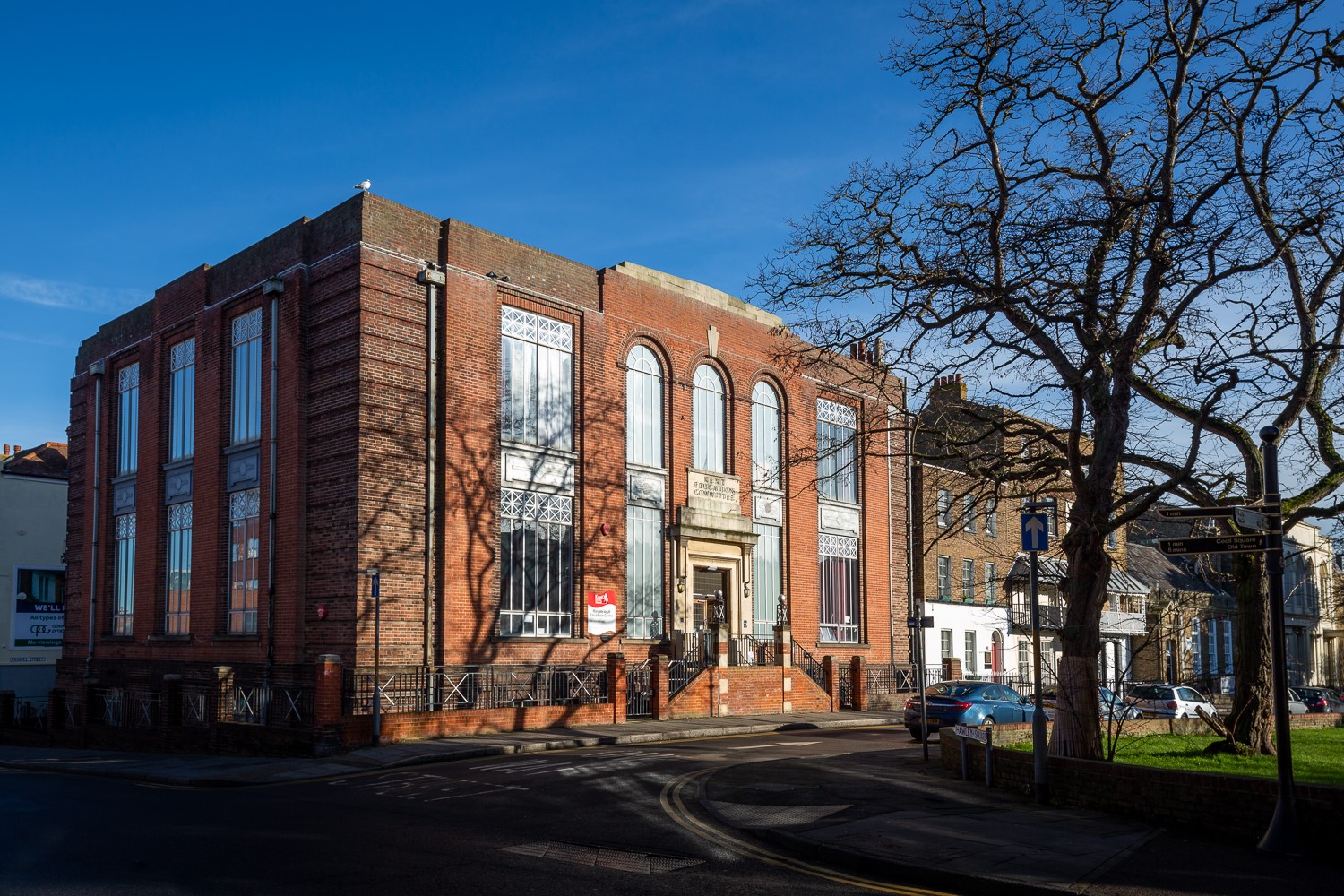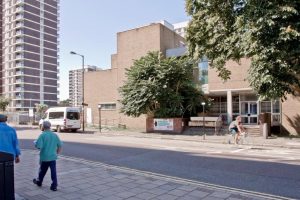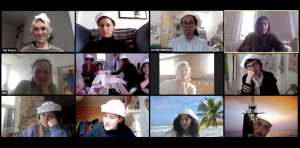
June 23, 2020, by lzzeb
Situated education in a time of pandemic
A blog by PhD researcher, Anna Colin
My PhD research is dedicated to exploring – conceptually, organisationally and physically – alternative learning, social and arts centres in the UK, from 1884-2022. The alternative space that constitutes the object of my study is a building-based, locally-rooted, democratic and emancipatory cultural, educational and social centre in which different forms of learning, sociabilities, publics and uses cohabit. This space might consider itself alternative for the pedagogical, artistic and programmatic methods it uses; for the ways in which it engages and hosts publics; for its involvement with social welfare and local politics against the status quo; for its governance and funding models; for it self-scrutinizing and adaptable nature; and, last but not least, for its conception or use of architectural space. My PhD is constructed around four case studies spanning different periods, the last of which is the Margate-based art school and community space Open School East (2013-present), which I co-founded and still direct at the time of writing.
Using the specific case of Open School East, this blog post sets out to explore the value and redundancy of physical and architectural space in relation to alternative and situated art education, both in ordinary times and in a time of pandemic. Further to this, the text reflects on how COVID-19 has transformed spatial, pedagogical and social practices, and on what possible teachings from the situation can be transferred into future planning and practice, especially when it comes to physical access to education.
About Open School East
Founded in 2013 in London before relocating to Margate in 2017, Open School East (OSE) sits halfway between a small alternative art school and a local community resource placing artistic and collaborative learning at its centre. Entirely free of charge, OSE provides adults and young people with an environment that is informal, responsive, versatile and non-exclusive. OSE’s pedagogical modes revolve around collective and democratic learning, critical thinking and a situated approach, placing learners in situations that directly connect to their experiences, be it the local neighbourhood and the communities who inhabit it as well as subjects ranging from gentrification to social isolation.
Building on recent history and use
Open School East has rented spaces in three buildings to date, two of which were council-owned. The first one, where OSE operated from 2013 to 2016, was the recently decommissioned Rose Lipman Library and Community Hall built in the 1970s in De Beauvoir, East London. The second one, OSE’s current home in Margate since 2019, was purpose-built as the Thanet School of Arts and Crafts in the early 1930s, before becoming an adult education centre in the 1970s. As buildings with a history of knowledge-production, social interactions, art education and adult learning, they have not only been fitting homes for Open School East, but have also provided the organisation with an insight into the adult education, literacy and community arts movements in Britain, which have inspired activities and aspects of the organisation’s development. Crucially, the local, communal and public remit of these buildings has too informed the shaping of the organisation’s philosophy and its ambition to make itself locally relevant. In addition, the way these buildings were spatially organised (at least at the time of OSE’s occupation) to welcome local residents and users – with a reception area, a social space/canteen and spacious rooms dedicated to set activities and forms of engagement – has constituted ideal spatial settings for OSE, while inspiring the blueprint for OSE’s next home, as we will shall explore shortly. If, since OSE’s departure, the old Rose Lipman Library and Community Hall has been largely partitioned off for creative industries’ studios and offices, Margate’s Adult Education Centre is still managed as a public facility and remains architecturally intact. One of the last standing remnants of the welfare state’s public service buildings, the Margate Adult Education Centre is characterised by a strong municipal feel, outmoded furniture and old smells, yet a feel-good, inclusive and pre-gentrification atmosphere.
Togetherness in space at the age of social distancing
While collaborative learning, local social interactions, and cooperation between programmes and users have been key to OSE’s identity and offer, each of these ambitions has been challenged by the current pandemic. The public health crisis has further tested the usability and relevance of OSE’s space, the security of which has been fought for after a succession of short-term leases and necessary relocations. On the eve of moving to a new and hopefully final home in Margate – this time a building with a long-lease and rented in full, and one in which the above-described settings and atmosphere will be partly replicated for the purpose of appropriate programme delivery as well as to enable continuity and familiarity – one may question the future of togetherness in space as social distancing is not only becoming the norm, but has also taught us about alternatives. This question is far from being unique to OSE; every school, university, museum, social centre and beyond is having to develop new forms of spatial organisation in order to accommodate safer modes of learning, reception and engagement.
Since the lockdown, two of the organisation’s main programmes have been transferred online. These are the Associates Programme – a year-long, part-time, semi-autonomous artistic development programme for adult practitioners, many of whom relocate to Margate for a year and often beyond – and the Young Associates Programme, a year-long, full-time accredited art and design programme for local young people aged 16-18, who have experienced disenfranchisement from mainstream education. In order for both programmes to keep going, computers have been distributed to the young people, art materials have been delivered to the two cohorts, and enhanced digital tools and literacy have been developed to support remote-learning and mentoring. In spite of these logistical efforts, emancipatory and participatory learning, along with the simple but vital bonding moments occurring outside of structured learning hours, have been strained by Zoom fatigue, feelings of disconnection and straight impossibility, which have impacted the learners’ mental health – a common occurrence in the education sector. The difficulty of making eye contact and reading signs of disengagement during virtual exchanges, coupled with noise pollution and camera shyness, which often make one resort to general muting and blank windows instead of expressive bodies, have made the building and maintenance of human connection a lot harder, all the while reasserting the conventional teacher-learner relationship many of us have fought to undo. In light of this, feelings of equity, which lead to the establishment of trust, so crucial in an informal learning situation, have too been put to test. As Garrick Jones and Paul Ashcroft comment in their topical book Alive: Digital Humans and their Organizations (2018), “The reason face-to-face meetings and events are powerful are because they accelerate the building of trust between people. […] Trust comes from spending time together and problem-solving together” (2018: 60).
Future potentials
Yet, looking back at where Open School East was, digitally speaking, a mere three months ago, and how it has previously accommodated learners who face physical barriers to accessing OSE’s programmes, one cannot help but acknowledge the progress the organisation has made as a result of the pandemic. Public events are now properly recorded and promptly uploaded; the website is currently being redeveloped to become more accessible, intuitive and interactive, soon allowing live group crits to take place and participants to upload content derived from collective and individual activity; overseas guests whose travel costs could never be afforded can now be invited to lead online seminars and workshops; and critically, OSE staff, Associates, Young Associates and mentors alike have all upped their digital skills and tolerance. Despite the abovementioned limitations and the need for reimagining the future of online learning, COVID-19 has given OSE the opportunity to further deliver on its inclusive ethos. From bed-bound and physically impaired individuals, to European and overseas applicants, for whom OSE cannot provide student visas due to its independent status, through to aspiring artists who cannot afford to leave their life behind and move to Margate, the type of participants OSE could welcome into its programmes has the potential of being greatly broadened. While this prospect is currently been discussed, one of the challenges that poses itself is how not to create divisions between those who attend in person and engage with OSE’s building, inner community as well as the local neighbourhood and its actors, so dear to the organisation’s initial project, and those who interact with OSE’s programmes digitally and/or physically, but far more sporadically. These questions remain to be answered in future months and a considered combination of approaches needs to be developed.
* Main image – Margate’s Adult Education Centre, 2019. Credit: Ollie Harrop.
No comments yet, fill out a comment to be the first



Leave a Reply